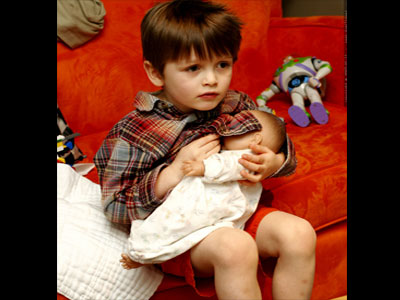After three children and collectively 6 years and still counting of nursing, breastfeeding is very important to me. I feel that there are so many health and psychological benefits to breastfeeding for the mother and child. I chose to breastfeed simply because it was as nature had intended, but I had no idea that I would love it so much. It was such an intimate and special moment with my child that no one else could provide! The health benefits were a bonus!
These are a few of the benefits according to the following website:
https://www.text4baby.org/index.php/miscellaneous/357-breastfeeding?gclid=COvK5faN07oCFY5AMgodPTkASw
BREASTFEEDING BENEFITS
FOR CHILD
- Colostrum- early milk is rich in nutrients and antibodies so babies get sick less often.
- Breast milk has all the perfect ingredients: fat, sugar, water, and protein
- Easy to Digest
- Breast milk helps fight disease in older children because of continuous antibodies
- Physical contact helps build secure attachments for babies
FOR MOTHER
- Life is easier- no sterilizing, measuring, mixing, or warming
- Save $- formula and feeding supplies can cost over $1500 each year
- Physical contact helps mother bond with baby
- Can reduce risk of type 2 diabetes, breast and ovarian cancer, and postpartum depression
- Working mother's miss less work because babies are ill less often
BREASTFEEDING AROUND THE WORLD
All around the world women are breastfeeding for a number of reasons. Some of the major influences for nursing are health benefits, economics, and culture. Since we are focusing on health issues I chose to investigate the Philippines.
 | The Philippines is one of the leaders in international efforts to promote and protect women’s right to breastfeed. The country has implemented laws to control aggressive marketing by formula companies and their false claims that formula makes babies smarter. The WHO estimated that the nation’s total lost wages from caring for formula-fed children with diarrhea and acute respiratory infections during the first six months of life was 1 billion pesos ($23.4 million). Eighty-eight percent of Filipino babies are breastfed at birth and 34% are exclusively breastfed up to five months of age. Source: Time, ChildInfo and Le Leche League Image Courtesy: © Jojo Pensica Jr. |
*This information and image was taken directly from http://www.incultureparent.com/2012/03/breastfeeding-around-the-world/#slide1 .
It is easy for me to talk about my love for breastfeeding, because it came so easily to me. I never had any soreness, latching problems, thrush, yeast infections, and the many other complications with breastfeeding. I feel sorry for women who want to breastfeed and can't or are discouraged by society, friends, family or work. As breastfeeding becomes more and more acceptable in the United States again, there are many more resources for women to use when having difficulties. The following are a few websites that help educate and encourage healthy breastfeeding.
La Leche League - http://www.llli.org
WIC - http://www.wichealth.org
Office On Women's Health, U.S. Department of Health & Human
Services - http://womenshealth.gov/breastfeeding/
Breastfeeding Support Consultants - http://bsccenter.org
Attachment Parenting International - http://attachmentparenting.org/
 | Nick in Portland, Oregon prefers breastfeeding his baby to his Buzz Lightyear toy. Image Courtesy: © Sean Dreilinger |
*This information and image was taken directly from http://www.incultureparent.com/2012/03/breastfeeding-around-the-world/#slide1 .
References
In Culture Parent. (2012). Breastfeeding around the world. Retrieved from
Text 4 Baby. (2013). Breastfeeding protects babies. Retrieved from
No comments:
Post a Comment